Being one the most important stages in the development of European painting, the term Impressionism designates a new trend in French art. For the first time since the Renaissance, artists have marked an end to classical painting techniques.
For the Impressionists, the rules according to which all European academies had conceived their paintings for over three centuries became obsolete. Their vision of the world and their concept of painting have changed.
Impression: Sunrise was the perceptive title of one of Claude Monet’s paintings shown in 1874 in the first exhibition of the Impressionists. Monet painted scenes of his childhood hometown of Le Havre to prepare for the event, eventually selecting his best Havre landscapes for display.
Among these Havre landscapes was a canvas painted in the early morning depicting a blue fog that seemed to transform the shapes of yachts into ghostly apparitions.
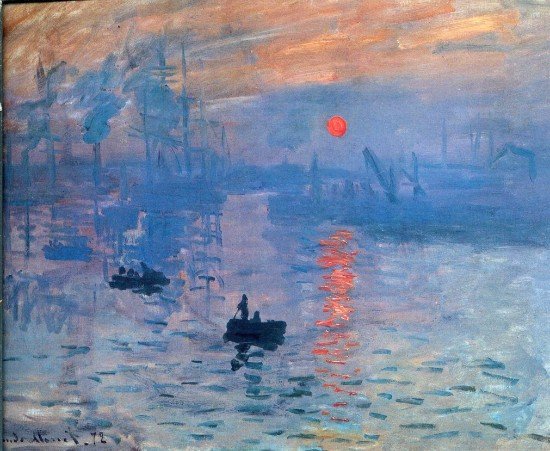
Claude Monet, Impression, Sunrise, 1873. Oil on canvas, 48 x 63 cm.
Monet had been criticized by his peers for the uniform titles of his works, the painter had not come up with anything more interesting than *View of Le Havre*.
*View of Le Havre* was obviously not an appropriate title for this particular painting, as Le Havre was nowhere to be seen.
“Write Impression,” Monet said to Renoir’s brother, Edmond, and in that moment began the story of Impressionism.
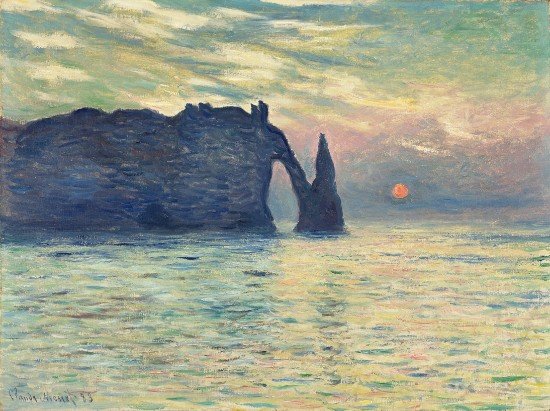
Claude Monet, The Cliff, Étretat, Sunset, 1883. Oil on canvas, 55 x 81 cm.
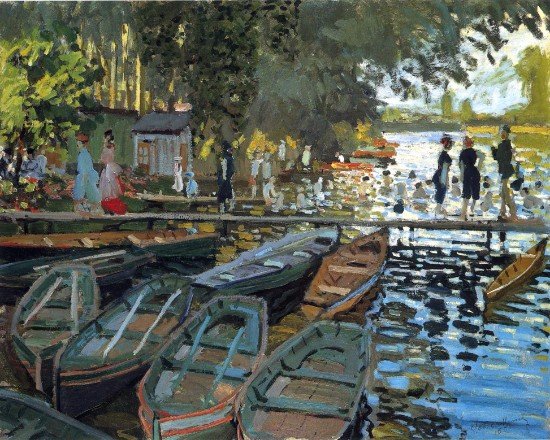
Claude Monet, Bathers at La Grenouillere, 1869. Oil on canvas.
The Impressionists disapproved the necessity of always having to base a painting on a story, and consequently, its link to mythological and religious subjects. Instead, nature was more interesting to them. Large-scale classical compositions were over. The spectacle of everyday life was far more fascinating.
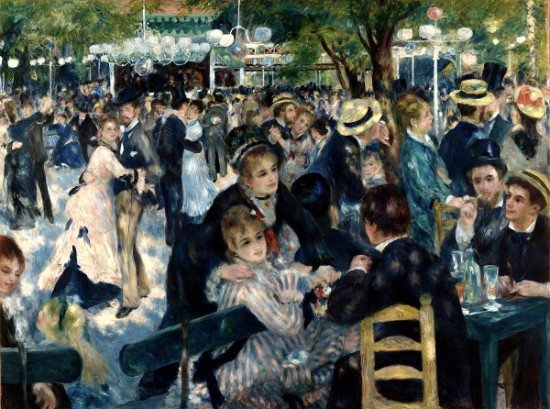
Pierre Auguste Renoir, Dance at the Moulin de la Galette, 1876. Oil on canvas, 131 x 175 cm.
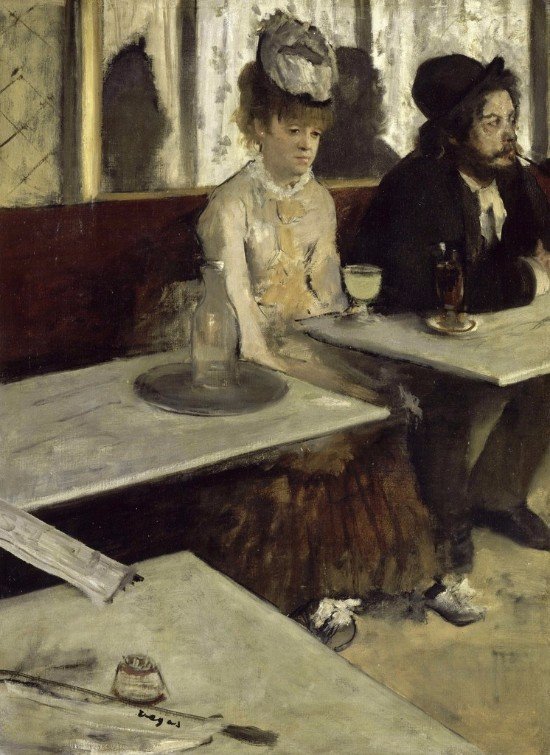
Edgar Degas, In a Café (LAbsinthe), between 1875 and 1876. Oil on canvas, 92 x 68.5 cm.
Preferring living nature, they chose the genre of landscape. It was a genre that appealed to observation and observation alone, rather than to the imagination, and from observation came the artist’s new view of nature. They understood that it was more important to paint what one saw, rather than how one was taught.
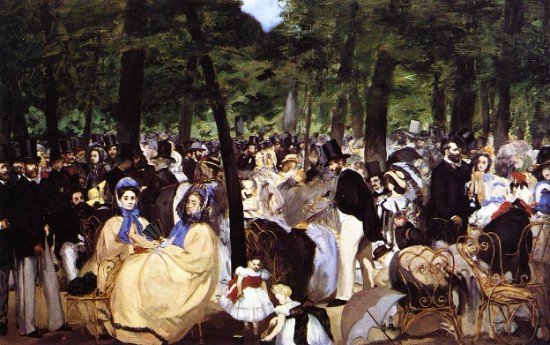
Édouard Manet, Music in the Tuileries Gardens, 1862. Oil on canvas, 76.2 x 118.1 cm.
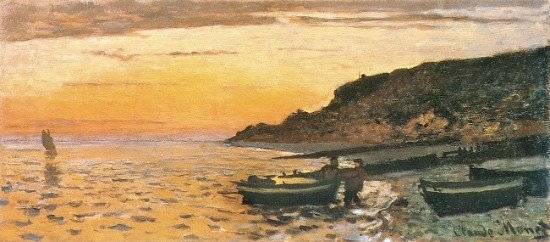
Claude Monet Seacoast at Saint-Adresse, Sunset, 1864, Oil on canvas.
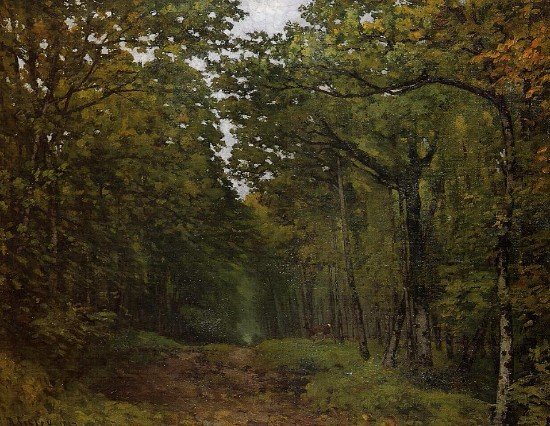
Alfred Sisley, Avenue of Chestnut Trees at La Celle-Saint-Cloud, 1867. Oil on canvas, 95.5 x 122.2 cm.
As it was impossible to see the workings of nature within the confines of the studio, the Impressionists took to the outdoors and set up their easels in fields and forests. They therefore launched a new trend of outdoor painting. Their group gathered more members and inevitably faced the condemnation of the strict art institutions established back then.
Nonetheless they continued reproducing the effects of outdoor lights and the felt sensations that occurred all along on their canvas.
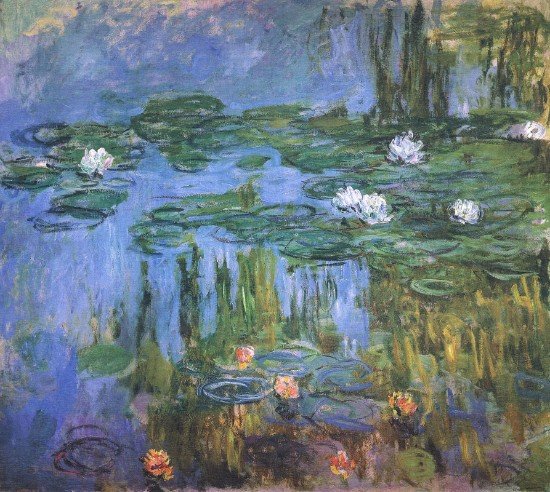
Claude Monet, Water Lilies, 1914-1915. Oil on canvas, 160 x 180 cm.
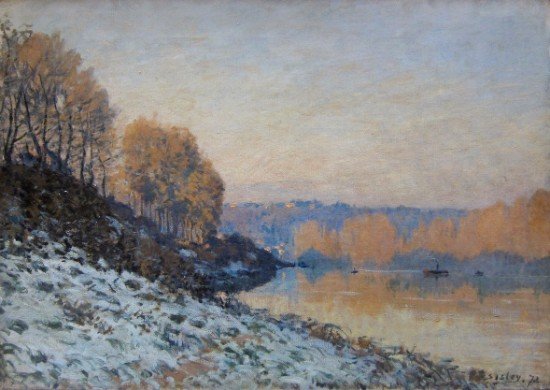
Alfred Sisley, Snow at Port-Marly, White Frost, 1872. Oil on canvas, 46.5 x 65.5 cm.
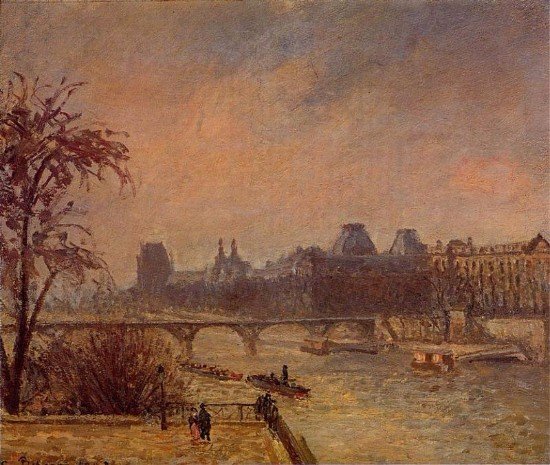
Camille Pissarro, The Seine River and the Louvre, 1903. Oil on canvas, 46 x 55 cm.
References & Additional Resources:
